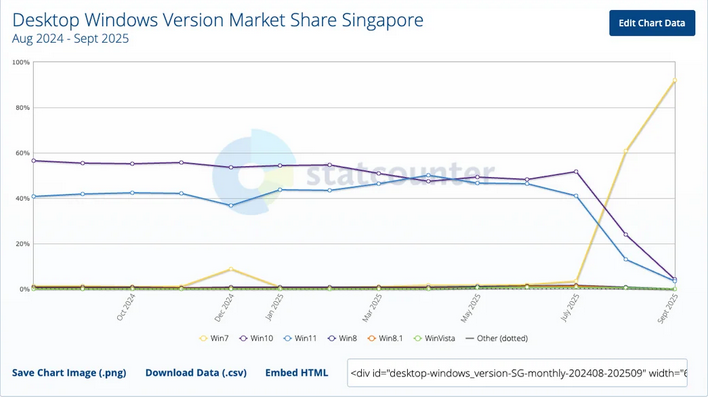

5·
18 days agoEven worse, those stats are also probably just a leftover from a giant spike coming from Singapore around that time:

That one eventually got cleaned up, although a lot of the spillover into other countries remains.
I did some math at the time, and it must’ve been about 1000 fake machines for every real one. And considering this was kept online for several weeks despite making news: Yes, stop using statcounter.
I wish it was only limited to support forums. I’ve even seen a Linux kernel driver where the Issues sections was closed and you should go to Discord instead. No thanks.